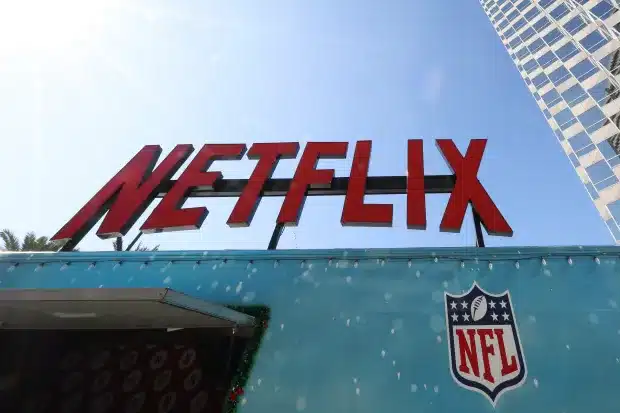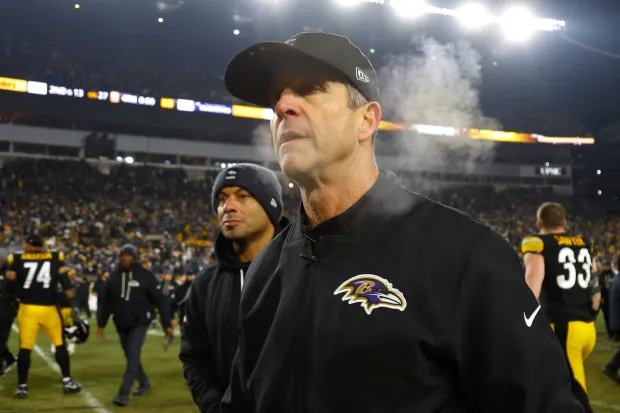A battle is brewing in the sports media world as ESPN and FOX Sports have drawn a hard line against Netflix, refusing to allow their on-air personalities to appear on the streaming giant’s 2025 Christmas Day NFL coverage. The dispute underscores a growing tension between traditional broadcast networks and the deep-pocketed streaming platforms now muscling into live sports broadcasting.
A New Front in the NFL Media Wars
In recent years, the NFL has expanded its media footprint across multiple platforms, making it one of the most fragmented viewing landscapes in sports history. Fans must now juggle ten different platforms — from CBS, FOX, and ESPN to newer players like Amazon Prime Video, Peacock, YouTube TV, and Netflix — to catch every game.
Netflix joined the fray in 2024, airing its first-ever “Christmas Gameday” doubleheader to impressive results. The Kansas City Chiefs’ showdown with the Pittsburgh Steelers, followed by the Baltimore Ravens’ clash with the Houston Texans, averaged a massive 26.5 million viewers, making them the most-streamed NFL games in U.S. history.
With that success, Netflix immediately began planning for this year’s slate, which features a star-studded NFC lineup: Dallas Cowboys at Washington Commanders and Detroit Lions vs. Minnesota Vikings. But unlike last year, the network will have to do it without the big-name personalities borrowed from ESPN and FOX.
ESPN and FOX Dig In
According to Front Office Sports’ Ryan Glasspiegel, both legacy networks have decided to cut off Netflix’s access to their on-air talent, citing concerns about promoting a direct competitor.
“We pay our people so much money, we don’t want them associated with other networks,” one anonymous executive told FOS. “If Netflix wants to build a broadcast team, go for it. Otherwise, stay the hell away from our talent.”
This means last year’s broadcast team — which included Mina Kimes, Laura Rutledge, and Greg Olsen — won’t be part of the 2025 lineup. Instead, Netflix will have to rely on CBS Sports and NBC Sports personnel, with Ian Eagle, Matt Ryan, Nate Burleson, and Noah Eagle reportedly confirmed to lead coverage.
“All we ever hear is ‘streaming is the future,’” another source added. “But we’ve spent years developing these people. Why should we lend them out to our competition?”
Netflix’s Challenge: Building Without Borrowing
Netflix had previously leaned heavily on guest talent from established networks to give its broadcasts instant credibility. Now, the platform faces a challenge — assembling a high-quality NFL production team without relying on ESPN or FOX regulars.
One major question mark remains around Drew Brees, who was initially announced for the 2025 Netflix broadcast before joining FOX as an analyst following Mark Sanchez’s departure. Whether FOX will allow him to cross over remains uncertain.
The timing of this dispute is especially significant given the looming expiration of the NFL’s current $111 billion media-rights deal in 2029. Streaming giants like Netflix, Amazon, and Apple TV+ are expected to make aggressive bids, threatening the long-standing dominance of the traditional networks.
The Bigger Picture: Who Owns Christmas Day Sports?
Netflix’s foray into live NFL broadcasting has already disrupted another long-standing tradition — the NBA’s Christmas Day games. In 2024, the NFL’s Christmas doubleheader outdrew the NBA’s five-game slate by more than five times, prompting even LeBron James to jokingly remind fans that December 25 is “our day.”
Now, with Amazon Prime Video set to join the action by hosting a third Christmas game — Patrick Mahomes and the Chiefs vs. the Broncos — the holiday is shaping up to be a streaming battleground.
Despite the pushback from ESPN and FOX, Netflix remains confident it can pull off another blockbuster audience, leaning on its reputation for innovation and production value.
For the first time in decades, the NFL’s most powerful partners are no longer just competing for ratings — they’re fighting for relevance in a world where the traditional TV screen is losing ground to the streaming app.
As one media executive told FOS, “This isn’t just about who calls the game — it’s about who controls the future of how America watches football.”




